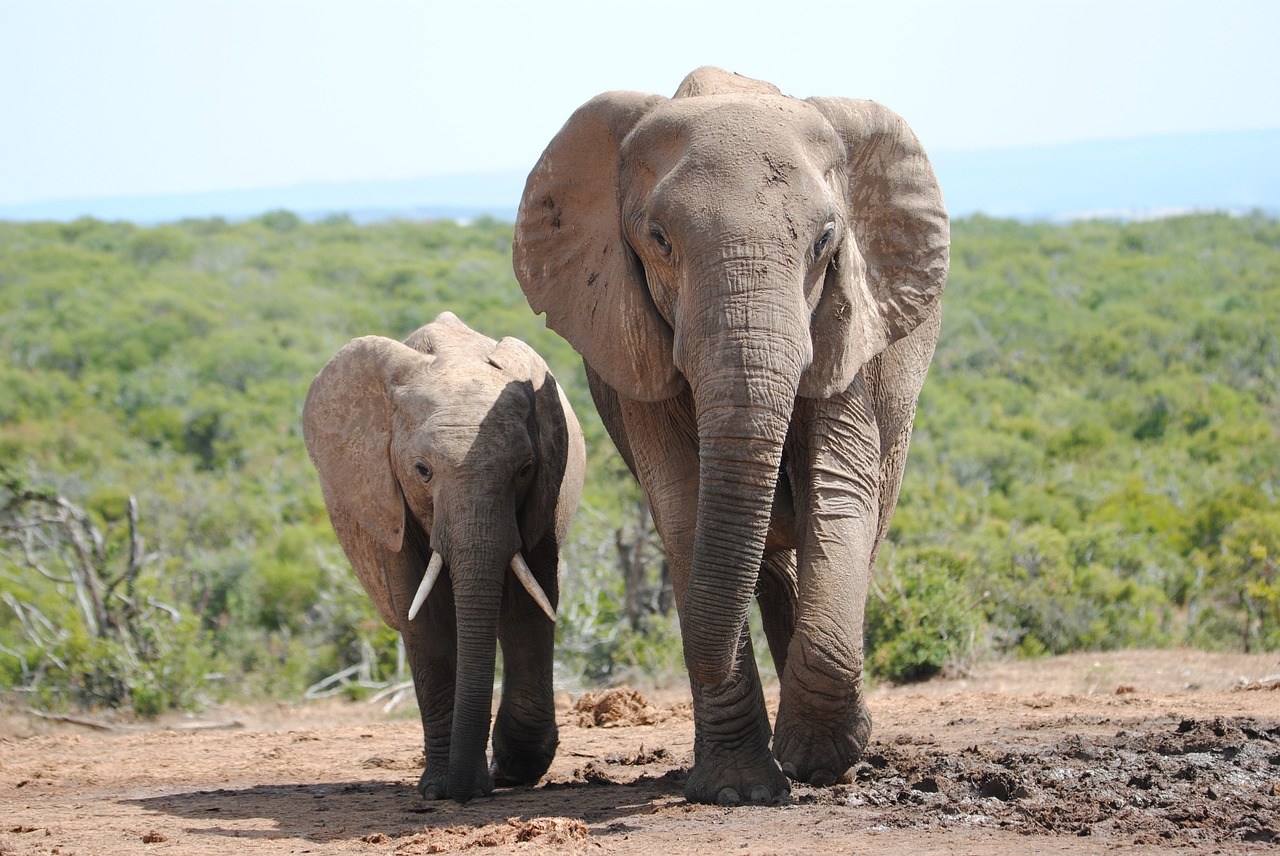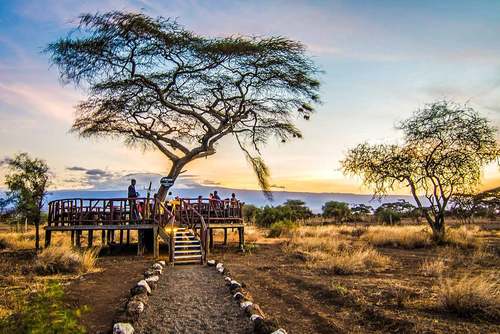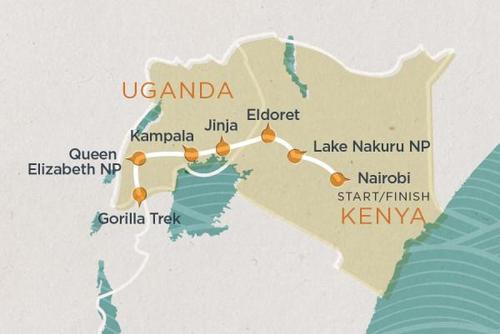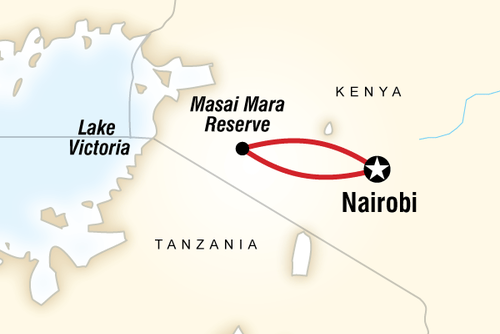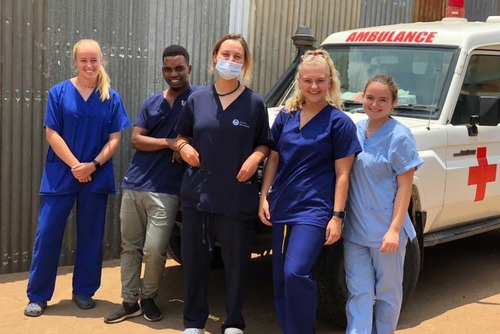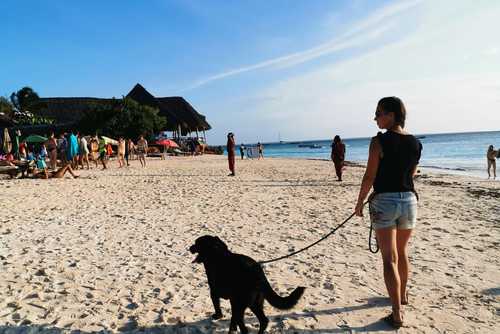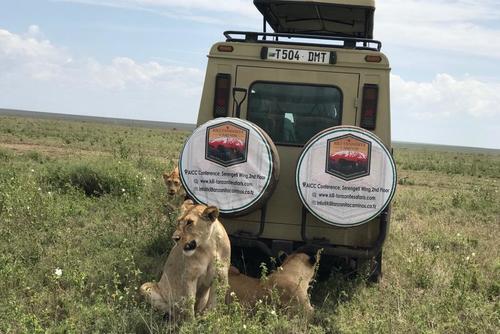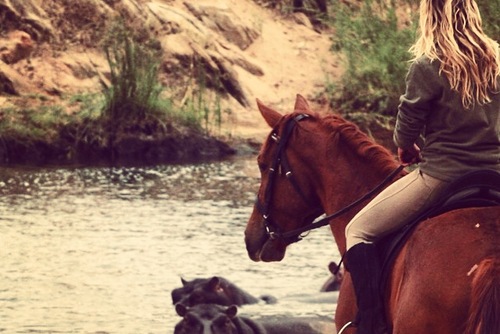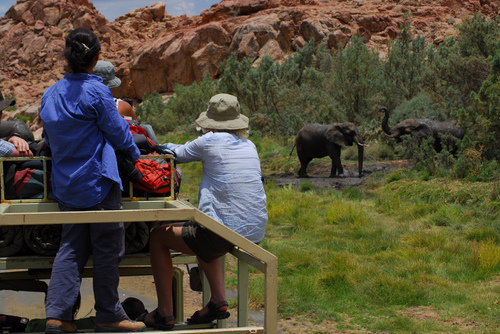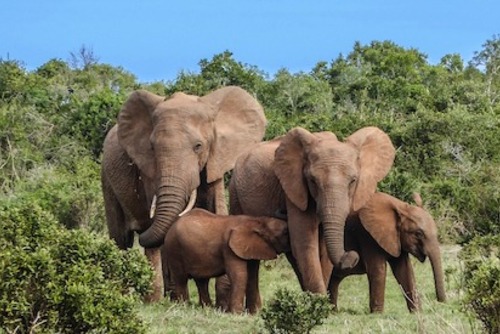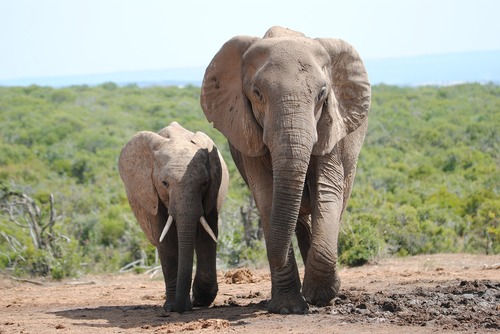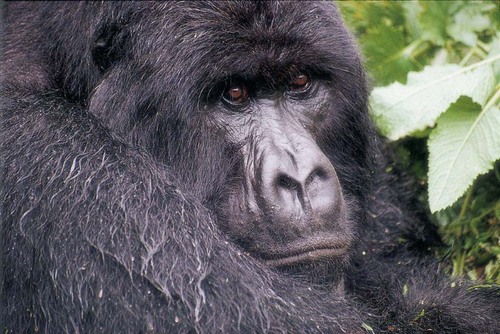There are a lot of reasons why one would want to fly across the world to Africa.
First of all, it is a chance to explore a completely different culture. When you travel a lot, all the places are the same, and even people are alike. But it is not the case with Africa - it is a whole new world with its own traditions, languages, and mindsets.
Secondly, you will able to see wildlife you saw only on Animal Planet when you were a kid. Can you imagine seeing elephants and lions up close?
Also, going to African safari can be an exciting opportunity if you are passionate about photography.
Here's what you need to know if you are going on safari in Africa for the first time:
1. Where to Go
There are so many countries you can book a safari. We recommend considering South Africa, Kenya, Tanzania and Uganda which are amongst some of the most popular destinations and have some of the best national parks in Africa.
Other countries which offer good value for money and are less tourist include Botswana, Namibia and Zambia. You will need to research all destinations to see which destinations appeal to you. For example, if you would like to see mountain gorillas you need to include
2. Best Time to Go
The best time for safari is from July until the end of October. However, the seasons differ in the South and Eastern Africa. It means you can plan your trip any time of the year.
Let's take a closer look at the season differences in African safaris:
Tanzania
If you plan on going to Tanzania to see the wildlife, the best time for doing so would be from July till the end of November. It is considered a dry season in Tanzania. You will be able to see the Great Migration in northern parks such as Ngorongoro and Serengeti. The worse time to go to Tanzanian safari is considered from March until the beginning of May. It is the time when the whole country suffers from heavy rains - the roads get washed out, and the animals tend to spread out and hide. Also, avoid going to Tanzania during the winter, since it is the hottest season in the country. It's nearly impossible to stay outside for longer than an hour during that time.
Kenya
You can see the annual migrations of zebra, gnu, and millions of wildebeest in Kenya from July to October. Guides recommend visiting other parks in Kenya during the dry season which starts in January and finishes at the beginning of March.
South Africa
There are so many reasons why you should travel to South Africa. This country is a great destination all year round but the best time for a South African wildlife safari is during our dry winter and spring months (May to early October). The Kruger is one of the top rated destinations in the world - be sure to add this to your itinerary.
Uganda
Uganda is the perfect safari destination if you want to see the Mountain Gorillas and visit incredible National Parks. Usually, it is very rainy in Uganda. To avoid getting wet, go to Uganda during the summer.
Zambia
You can see a small version of the Great Migration in Zambia in November. It is the time when almost 30.000 wildebeest gather in Liuwa Plain National Park. To enjoy your stay in Zambia, go there during the autumn; it is the end of the dry season. You will be able to take pictures of elephants, zebra, and impala.
Botswana
Botswana is considered one of the most expensive safari destinations in Africa due to its inaccessible roads. To get to the safari, you'd have to charter a small plane. You can also find cheaper options in May and October. However, the best time to visit Botswana is summer.
3. Book Independently or Through a Company
There are literally hundreds of local and international travel operators offering safaris in Africa. You can choose to book every yourself, with a travel agent or direct with a safari lodge. Another option is to book an overland tour of Africa where you will get to travel and see multiple destinations. Some companies also offer combo travel experiences where you can mix sightseeing with volunteering in Africa and help wildlife conservation efforts. Prices vary depending on the time of year, duration and level of luxury you are seeking. Be sure to book well in advance to get the best deals.
4. How Long to be Away For
Depending on where you are flying from, Africa is a long way and a short break isn't really enough time to experience everything. We recommend spending at least two weeks, this gives you time to aclimatise, get used to the time zone, climate and new surroundings. You will then get to enjoy a relaxing trip rather than a rushed trip. Remember also countries like South Africa and Tanzania are huge, just travelling to some destinations can take hours/days.
5. Check Medical Requirements
Depending on where you are going you will need to see if any vaccinations are needed. Some countries have real problems with diseases like malaria, yellow fever and dengue fever. Be sure to visit your local GP clinic well in advance of departure to make sure you have all the necessary jabs.
6. What to Pack
Going on safari isn't the same as going to another city. That's why you need to pack your bag responsibly. Visiting parks and safaris can take days/weeks, so make sure you have all the items from the list below:
Light backpack
Keep it simple - you will not need your laptop or books during long safari rides. Avoid taking bags that don't zip. Otherwise, you will have sand everywhere.
First aid kit
You never know what might happen in the middle of your trip, so you'd better be prepared, especially if you travel with kids. Most guides are obligated to have a first aid kit in the car, but it doesn't mean they will have the right medication for you or your loved ones. Don't forget to take medicines against diarrhea, car sickness, and malaria.
Mosquito repellant
Mosquitoes in Africa are particularly dangerous since they transmit malaria. That's why you need to get a malaria vaccine before traveling to Africa. Also, use repellent during the safari and a mosquito net when you sleep.
Snacks and water
Make sure to pack a couple of water bottles and light snacks. It will help you survive during the day under the sun. The good thing is that organized safari rides usually provide their clients with food on the way. However, there is a chance you will not like something they'll give you, or you will get hungry at the beginning of safari. Having your own snack is necessary if you travel with kids.
Sunscreen
You can survive in Africa without sunscreen only if you stay in your hotel room all the time. To avoid getting burned in the middle of nowhere, invest in high-quality sunscreen. Also, don't forget to take a pair of sunglasses for the safari.
Camera
Going on safari is once in a lifetime experience. Make sure to take the best camera, lens, extra batteries, memory card, and a tripod. It is difficult to take high-quality pictures of the animals with your smartphone. Try to get a camera with a good zoom.
7. What to Wear
No one will judge your style in Africa. So, don't take too many outfits with you. You need to make sure your clothes are comfortable and breathable enough. It is recommended to dress in layers since it can be very hot in the morning and cold in the evening. Avoid wearing camouflage clothing since it is forbidden in Africa.
Pack a few pairs of pants and long-sleeves shirts in order to minimize exposure to mosquitoes. Keep in mind that your guide will drive around the bush the whole day so the chances you will be covered in the sand are pretty high. Check out these tips how to plan for a safari for more recommendations.
8. Listen to Safety Advice
Going on a safari really is a dream experience but you have to remember it can be quite dangerous. Always listen to your guides and don't be afraid to ask questions. For example, if you are told not to wander outside of camp or get out of your vehicle, don't. Even if it might be tempting to get close to exotic animals, it isn't worth the risk so you should be a responsible tourist. Always trust your safari guides, they are experienced at what they do and have gone through lots of training.
9. Be Prepared for Early Starts
Animals are very different to humans with most activity at night and early morning. You can expect some game drives to start early, like 5/6am! When you see sunset and animals in their natural habitat it is worth the lack of sleep!
10. You Aren't Guaranteed to See Anything
Okay, we don't want to sound negative but sometimes you might not be lucky and see any animals, for example the big 5. Okay this is a rare, and you usually will see some, but for example, lions and leopards can be quite elusive and hard to track down.
11. Where You Stay Matters
Choosing a good resort to stay in can really enhance the whole experience of going on a safari. Choose wisely, check reviews and feedback from past travellers before booking.
12. Enjoy Every Moment
Seeing the lions or giraffes up close is an unforgettable experience. Every safari trip is unpredictable, so stay flexible and be prepared for everything. You will have a chance to see another world, take a lot of pictures and learn something new. The experience will fly by, so relish every moment you have in the bush.

